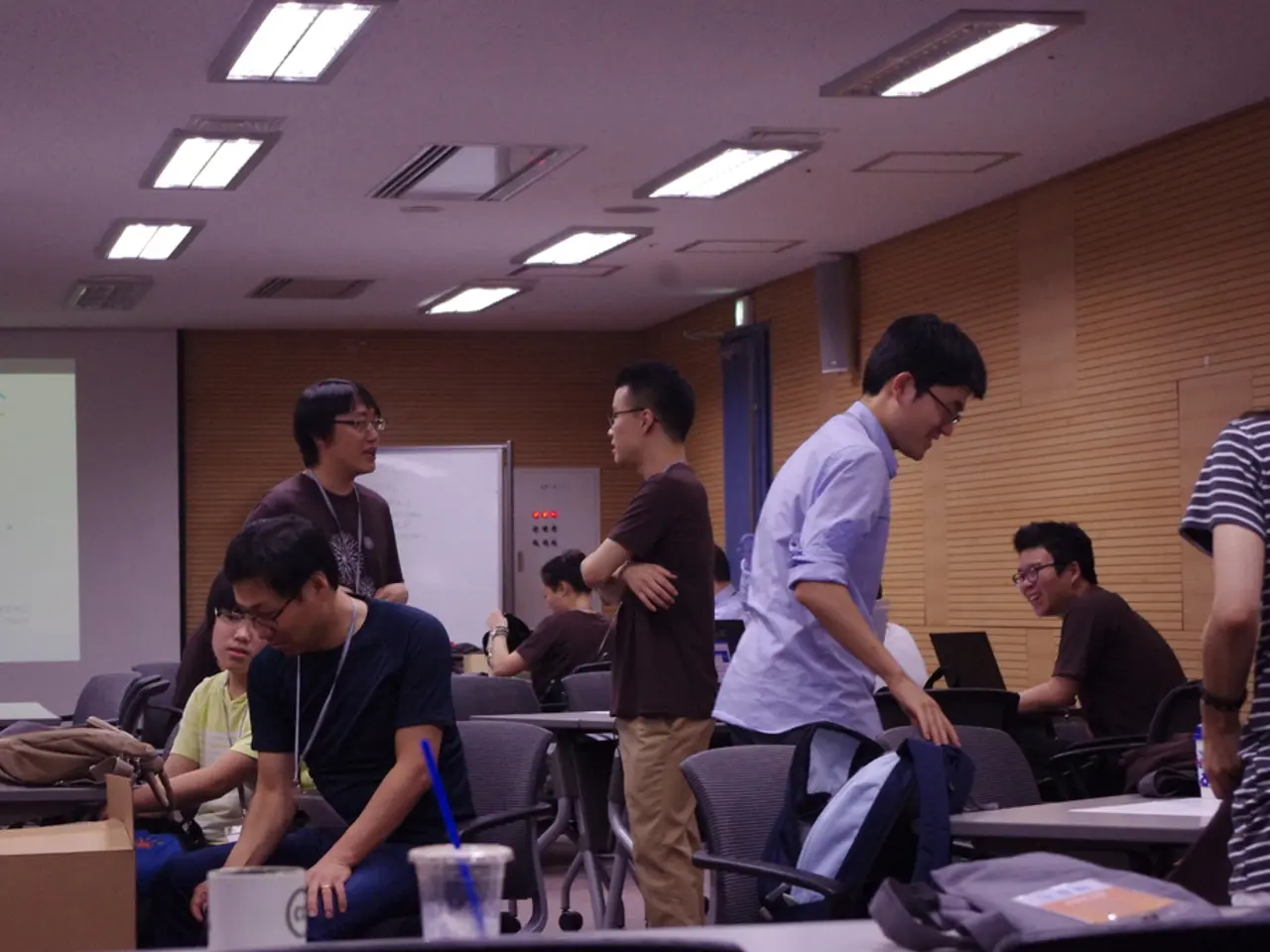Investigating the Application of Mobile Cases in Educational Institutions
In a bid to enhance focus and reduce distractions in the classroom, Barnard School in New Haven has implemented a unique approach: students place their phones in Yondr pouches at the beginning of the day and keep them locked until dismissal. This strategy, while not without its challenges, offers several benefits.
The Pros of Using Yondr Phone Pouches
By physically preventing access to phones during school hours, Yondr pouches help students stay focused on lessons, reducing distractions. The increased engagement and social interaction that ensues, as students connect without digital interruptions, fosters in-person communication skills. A safer and more productive learning environment is created by minimizing disruptions and potential safety risks linked to phone use in schools.
The Cons and Challenges
The high cost of each Yondr pouch, approximately $30, can be a significant expense for large student populations, creating ongoing operational costs. The process of locking and unlocking pouches can consume considerable staff time, causing logistical challenges, especially in large schools. Resistance from students and families is another challenge, with some finding ways to bypass the system and families expressing concerns about safety or autonomy.
Security concerns arise if alternative storage options like lockers are used, as physical security can be unreliable, leading to fears of theft or damage to property. There's also the potential negative impact on digital literacy if phone use is excessively restricted without guidance on responsible usage. Balancing digital well-being requires not just removing phones but educating students on healthy habits with technology rather than just banning devices.
Addressing the Challenges
To address these challenges, schools can engage families and students early, communicate the educational benefits clearly, gather input, and offer forums to address concerns to reduce resistance. Investing in efficient logistics, such as multiple unlocking stations and staff training, can minimize daily bottlenecks and frustration. Offering digital literacy programs alongside phone management policies helps teach responsible use, critical thinking about technology, and promotes mindfulness with devices.
Regularly collecting feedback and monitoring effectiveness through surveys and data allows schools to adjust the policy and address unforeseen issues. Providing alternatives for urgent communication needs, such as supervised access during emergencies or designated phone use times, maintains trust and safety. Considering cost-effective alternatives or phased implementation can help schools transition more smoothly, as some schools transition middle schoolers first or use lockers with enhanced security measures.
The Benefits of Yondr Phone Pouches
Eighth-grader Grace Sherman attributes some of her academic improvement to the reduction in phone distractions. Limiting phone use minimizes disruptions such as texting during class or accessing inappropriate content, contributing to a more conducive learning environment. By engaging students in discussions about the rationale behind restrictions, schools can create policies that are more aligned with their values and concerns.
The cost of implementing phone pouches can be a significant barrier, especially for schools in lower socio-economic areas. At $20 per pouch, outfitting a large student body can strain limited budgets. Principal Stephanie Skiba of Barnard School reports that the pouches have not only curbed social media use but also enhanced peer interactions and classroom engagement.
Without the constant pull of phones, students have more opportunities for meaningful, organic interactions with peers. The use of phone pouches can lead to states of intense focus, known as flow and deep work. The implementation of phone management systems, such as Yondr phone pouches, is gaining traction in schools to address distractions to student learning.
Sharing experiences across educational communities can help refine the approach to phone management systems for optimal benefits. The collaborative approach increases buy-in and empowers students to take ownership of their behavior and school environment. Increased social interaction is fundamental to student development because face-to-face communication builds essential life skills.
The use of phone pouches has been associated with increased academic focus, as demonstrated by improved performance at Barnard School. Schools can involve students in refining policies around phone pouches, increasing buy-in and student agency. Forty percent of public schools experience moderate to severe negative impacts on student learning and teacher/staff morale when students use electronic devices without permission.
Phone pouches can encourage the recognition of digital boundaries and the development of healthier technology habits. As more schools adopt this approach, the potential for a more focused and productive learning environment grows, fostering a generation of students equipped with the skills they need for success in the digital age.
- Yondr pouches help students stay focused on lessons in school, reducing distractions by physically preventing phone access during school hours.
- Engaging families and students early about the benefits of Yondr pouches, gathering input, and addressing concerns can help reduce resistance.
- Investing in efficient logistics, such as multiple unlocking stations and staff training, can minimize daily bottlenecks and frustration in implementing Yondr pouches.
- Offering digital literacy programs alongside phone management policies helps teach responsible use, critical thinking about technology, and promotes mindfulness with devices.
- Regularly collecting feedback and monitoring effectiveness can allow schools to adjust the policy and address unforeseen issues, maintaining trust and safety.
- Limiting phone use with Yondr pouches can cause a reduction in academics disruptions like texting during class or accessing inappropriate content, contributing to a more effective learning environment.
- Schools can involve students in refining policies around phone pouches, increasing buy-in and student agency, which can lead to states of intense focus known as flow and deep work.




